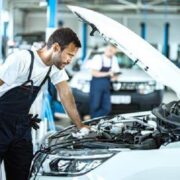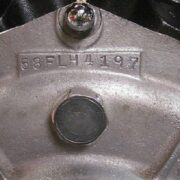Car ownership is often equated with freedom. With your own set of wheels, you can go wherever you want, whenever you want. If you’ve never owned a vehicle before, it’s a special experience to visit a car dealership, sign the papers and drive that new ride off the lot.
However, buying and owning a car can be more expensive than you have planned for, beginning right at the point of sale. Unforeseen costs can be startling and a bit discouraging, so it’s important to be prepared for them.
- Add-Ons and Fees
While at the dealership, you’ll be presented with many add-on options with the purchase of your vehicle. Know that there will be some pressure, whether subtle or direct, to shell out a few more dollars on these extras. Some of them, such as anti-theft devices, might be very useful to you — others are just a waste of money.
“Never, I repeat, never buy an extended warranty on a new vehicle,” Michael Caudill, a California car expert told U.S. News. “You’re already covered bumper to bumper at three years or 36,000 miles [whichever comes first]. Wait to see how the car operates. If it’s a lemon, you’ll be able to file a claim.” And, should the car run smoothly, he says, “you can option for an extended warranty toward the end of your loan, and sometimes it may be more affordable.”
Caudill also cautions against prepay oil and tire rotation fees: “I have found them to be too expensive even when bundled.”
Additionally, factor in all the fees associated with your potential auto acquisition. Most purchases come with fees for vehicle registration, licensing, documentation, compliance, emissions testing, floor plan, advertising, not to mention sales tax. At the outset of your dealership visit, ask for an itemized list of the fees, get the total price with everything included and have the sales associate refer to that price throughout your discussions, to avoid confusion and any last-minute surprises.
- Maintenance
You could easily spend thousands of dollars servicing a vehicle. First and foremost, you’ll need to change the oil and oil filter regularly to keep your car engine in tip-top shape. Tire rotation and alignment is also important for avoiding blowouts and helping your tires last longer.
Some cars, particularly used vehicles, often require more than just routine maintenance. Cars with higher miles often need more repairs. If the ride was not well-cared-for by the previous owner, you’ll have even more problems to cover. Thankfully, you can now look at any car’s service history by plugging in its vehicle identification number (VIN) at sites like Carfax.
New vehicles tend to require less maintenance if you can handle the higher monthly payments.
“[Cars today] are meant to last and last and last, and they typically don’t fail unless you’ve ignored something downstream,” Kristin Brocoff, director of communications for the car issue diagnostic site CarMD.com told NerdWallett.
That being said, “certain parts will likely need to be replaced,” Brocoff adds. Tires, for example, must be replaced every 30,000 to 70,000 miles, depending on the tire, and the cost is typically around $200 to $300 per tire. Wiper blades, engine air filters, brake pads, cabin air filters, and other items will eventually need to be replaced or repaired, even on newer vehicles.
- Car Accidents
In the United States, there are 6 million car accidents in each year. These accidents range from minimal fender benders to totaled vehicles. Multiply that by, say, 10 years of driving, and it’s naive to believe you’ll never be in some type of damage-inducing crash. Insurance is, of course, mandatory for all vehicles and should be factored in as a recurring costs at the beginning of your car search.
The cost of repairing the vehicle can be relatively minimal — a dent and chipped paint can cost anywhere from $100 to $300 to fix — or exorbitant if your car is wrecked. Most of the time, insurance will help to cover the costs of major repairs or even a new car, but not always. It’s important to be prepared for this possibility.
There are also the resulting medical bills if you are injured. And if the accident was your fault, you may also be liable for the medical bills of passengers in both your car and the other vehicle. Otherwise, the other driver’s insurance should cover your bills. If they don’t, you should contact a personal injury attorney to discuss suing for rightful compensation.
Car ownership is a joy, but be aware of the fees and costs associated with this rite of passage. You’ll enjoy your vehicle much more if you have adequate savings to cover the expenses.















Comments